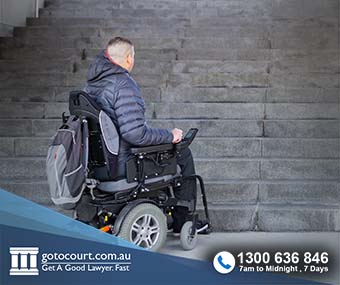Sex Work and the Law (Qld)
Sex Work and the Law (Qld)
In May 2024, Queensland’s controversial laws surrounding sex workers were reformed with the passage of the Criminal Code (Decriminalising Sex Work) and Other Legislation Amendment Bill. Under the new laws, sex work is now fully decriminalised in Queensland. This page outlines the new laws on sex work in Queensland.
What is sex work?
Sex work, previously known as prostitution, is the provision of sexual services for material compensation. This may include direct physical contact such as penetrative or oral sex, or indirect sexual stimulation.
Sex work occurs on a voluntary (consensual) basis and does not include acts that are coerced or non-consensual.
Sex work may occur in a licensed brothel, on the street, via an escort agency or with two or more sex workers operating together.
Abolition of sex work offences
Under the old legal scheme in Queensland, sex work was legal only if it took place in a licensed brothel. Sex work that occurred under any other circumstances was a criminal offence unless it occurred in private, and the worker was operating alone.
The changes that have now been passed abolish the range of criminal offences relating to prostitution that previously existed under the Criminal Code 1899. These included the offences of soliciting in public, participating in prostitution and procuring a person for prostitution.
It remains a criminal offence to procure sexual acts of commercial sexual services by coercion (section 218 of the Criminal Code 1899). This offence is punishable by a maximum penalty of 14 years imprisonment.
Sex work is now fully legal
Under the changes, sex work is now fully legal in Queensland. This means that a person does not commit an offence if they carry out sex work in Queensland, regardless of whether the work takes place at a licensed brothel or elsewhere.
Under the new framework, the sex work industry will be regulated by Queensland Workplace Health and Safety.
Discrimination on the basis of being a sex worker
Under the changes, the Anti-Discrimination Act 1991 has been amended to include a prohibition against discrimination against a person on the basis of their sex work activity. This means that a person is now protected against discrimination on the basis of sex work activity in the areas of work, education, accommodation, the provision of goods and services, insurance, superannuation, the disposition of land and in club membership.
Reasons for the reform
The Bill was passed by Labor, the Greens and independents. Upon its passage, Queensland Attorney-General Yvette D’ath said:
“The new laws ensure workers have access to the same human rights and workplace health and safety protections as other Queensland workers.
“Sex workers should not have to choose between operating legally with safety risks and operating safely with legal risks – they will now be able to operate both safely and legally.
“These reforms will make the sex work industry safer, fairer and reduce stigma and discrimination experienced by sex workers.”
The old legal framework surrounding sex work in Queensland was much criticised as it prevented a privately operating sex worker from legally operating together with other workers. This meant that workers carried out their business in isolation, making their occupation unnecessarily dangerous. The old system was also criticised for pandering to the economic interests of licensed brothels, whose business interests are undercut by private sex workers.
Responses to the changes
The changes have been welcomed by the Queensland Council of Unions and by the sex work community, with supporters saying the changes are likely to lead to a reduction in discrimination and exploitation and to improve health and safety in the sex work industry.
The state co-ordinator of Respect Inc, Lulu Holiday, said, “Sex workers experience excessive levels of discrimination. Decriminalisation, including anti-discrimination protections, will send a message that it will no longer be tolerated.”
However, the Bill was opposed by the Liberal-Nationals, One Nation and Katter’s Australian party. Opponents of the Bill have questioned how the new laws will regulate sex work and have expressed concern that such activity may prove a ‘nuisance’ to neighbours.
Some advocates of decriminalisation have expressed concern that the amending laws may be wound back in the future if the Liberal-Nationals return to power in Queensland.
If you require legal advice or representation in a criminal law matter or in any other legal matter, please contact Go To Court Lawyers.

Affordable Lawyers
Our Go To Court Lawyers will assist you in all areas of law. We specialise in providing legal advice urgently – at the time when you need it most. If you need a lawyer right now, today, we can help you – no matter where you are in Australia.How It Works




1. You speak directly to a lawyer
When you call the Go To Court Legal Hotline, you will be connected directly to a lawyer, every time.

2. Get your legal situation assessed
We determine the best way forward in your legal matter, free of charge. If you want to go ahead and book a face-to-face appointment, we will connect you with a specialist in your local area.

3. We arrange everything as needed
If you want to go ahead and book a fact-to-face appointment, we will connect you with a specialist in your local area no matter where you are and even at very short notice.



















